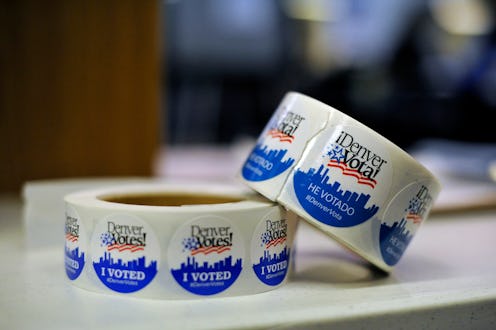Life
Is Colorado Winner Take-All?
Polls in Colorado will be closing tonight at 9 pm EST, and, since Colorado is a swing state, people will be watching closely to see which way the vote goes. Is Colorado winner take-all? The answer is “yes,” and that’s what makes the state’s vote so important — whichever candidate wins the most votes in the Centennial State will receive all nine of the state’s Electoral College votes. And in an election this close, those nine votes could be crucial.
Every state’s number of Electoral College votes is equivalent to its number of seats in Congress; Colorado has two Senate seats and seven seats in the House of Representatives, adding up to nine. Every state in the nation, except Nebraska and Maine, follows a “winner take-all” policy when it comes to the Electoral College, meaning that the person with the most popular votes gets all of a state’s Electoral College votes. (Nebraska and Maine both have systems for splitting their Electoral College votes proportionally between candidates). This winner take-all rule is the reason that it is possible for a candidate to win the popular vote and still lose the election, as happened in 2000 with Al Gore.
Colorado's polls close at 9 pm EST, but, for the first time, most of the state's ballots are mail-in, so it's not totally clear when the full results will be available.
So why is Colorado so important to the election this year? Colorado has historically voted Republican, but in 2008 and 2012 the state went blue and voted for Barack Obama. FiveThirtyEight suggests that, to win the election, Hillary Clinton “probably needs to win Colorado.” The Denver Post identifies Colorado as potentially key for Donald Trump, as it is one of the swing states that might switch over to red from the last election, though CNN suggests that Colorado might be moving out of the swing state game and becoming more fixed as a blue state. If Hillary Clinton wins Colorado this year, it'll be the first time that the state has gone blue three presidential elections in a row in a century.
